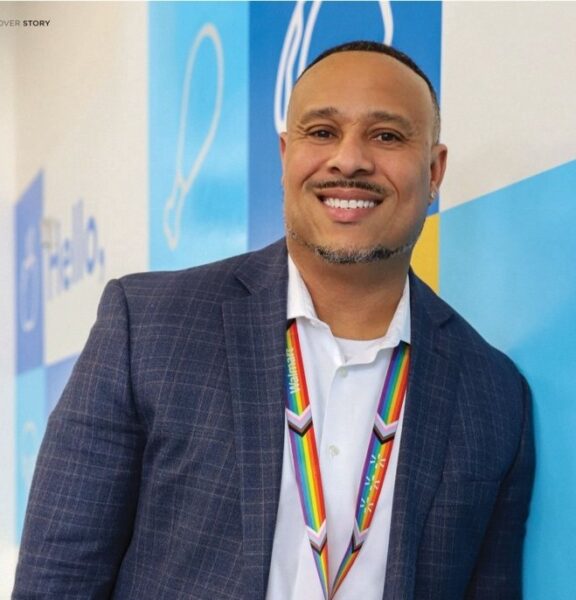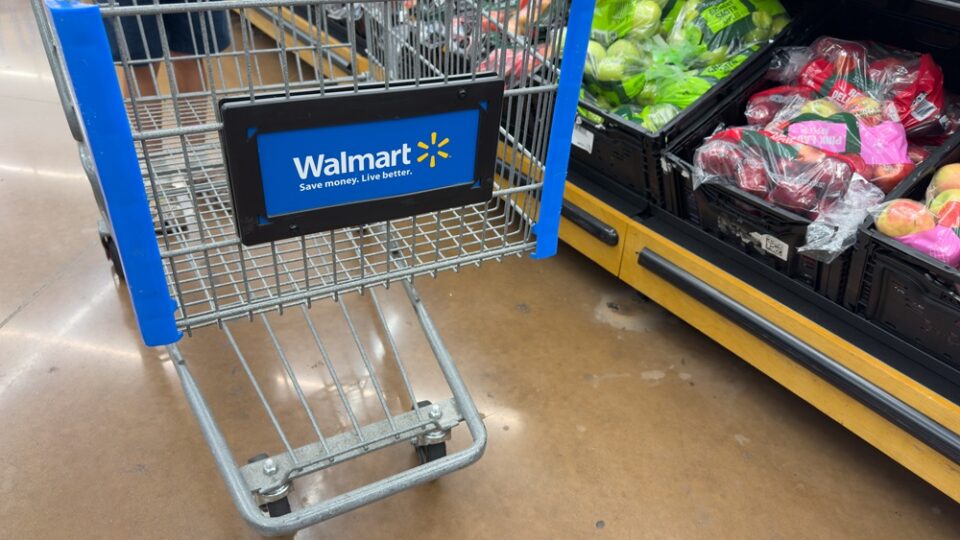Cedric Clark didn’t originally intend to have a career in retail, much less rise to the heights of EVP of Store Operations at Walmart, one of the world’s largest retailers. At the beginning of his working life he was an athlete, playing basketball professionally overseas when 9/11 interrupted that journey, at least temporarily.

He took a job as a sporting goods associate in a Washington state Walmart store as a means to support himself before he found his next athletic opportunity, “and I fell in love with it,” he said in an interview with Retail TouchPoints. “I got several opportunities to [work in] different roles, and in a little over a year, I decided to stay with [retail].”
For Clark, the intersection point between sports and Walmart was, and remains, their shared emphasis on teamwork. “I’d been on teams all my life, and coming from a team background in sports, I loved how everyone had their different departments with a structure of leadership for the segment they led, and team members to drive that,” he said.
Clark shared more about his career as well as the structures at Walmart that keep him and other executives in tune with the retailer’s 1.2 million associates at its 4,600+ stores.
Retail TouchPoints (RTP): How have your early experiences working at Walmart informed your career progression?
Cedric Clark: For about the first third of my retail career, I worked in asset protection, first in a store and eventually at district and regional levels. I got to look at the business as a total store and to see the business more broadly — things like what created profit and loss, seasonality and demand for different items. That was my “Retail 101” education. Then I got the opportunity to cross into operations and use my detailed experience in a support role, and also to better understand the company’s inner workings and drive the teamwork side.
RTP: And how do you tap into that teamwork in your current role?
Clark: One of the framings for our organization is something [Walmart founder] Sam Walton said — that the best ideas come from the associates. A lot of the ideas do come from the teams that are providing feedback on what makes things better for the customers, and ultimately makes Walmart both the best place to shop and the best place to work.
Listening is a huge framework for me. No matter what level of associate or his/her role, when I meet with them I’ll always ask them, “What am I not seeing?” And their suggestions, some of them the most simple things, can make such a big deal for their life and, ultimately, make things better for the customer. I learned how beneficial it was to let them, the 1.2 million people who work at Walmart, help you to help create success. That’s stuck with me always. I personally have an open-door policy; anyone can share things with me, at any time, if it affects them or the customer.
RTP: What structures does Walmart have in place to encourage that type of communication?
Clark: We just finished our associate engagement survey (AES) a few weeks ago. We send a survey that takes four to seven minutes to fill out to people at all levels of the company, asking about things we can do to make Walmart better. Then in November, the store managers frame out their action plans, using information they receive from the [people in their individual store], because it’s all anonymous.
Then, within our six business units and five geographies, we get all the store managers together on a quarterly basis. There are also three big meetings annually, including our shareholders meeting at the end of May/early June, and a holiday meeting. Plus, [the executives] always have listening sessions — including [President and CEO of Walmart U.S.] John Furner. Nothing is out of bounds or off limits that affects the stores.
RTP: What are some of the most common issues associates bring up?
Clark: The accuracy and availability of inventory, which is a key component of success. The more they have access, the more often the transaction happens. That’s something you’re always working on in an environment where people are taking things off the shelf all the time. It’s about simplifying and using the tools to make [inventory accuracy] efficient, and to ultimately provide access to the products customers want.
RTP: If you could give your younger self advice about succeeding in your career, what would you say?
Clark: I’d encourage myself to enjoy each moment of opportunity, like a new position that gives you a moment to understand a different part of the business. Those early opportunities will still be applicable [later on], and you can still leverage them to benefit the company and the people you lead.
I’d also warn myself that careers are dynamic and that you’re going to be put into uncomfortable situations, and to breathe easy when you do get to this point. I’d say to use everything and everyone around you to support your becoming proficient in [your job], because it’s going to get challenging. Fortunately, the job you chose has teams, which mitigates anxiety and ultimately supports the people you lead and the customers you serve.













